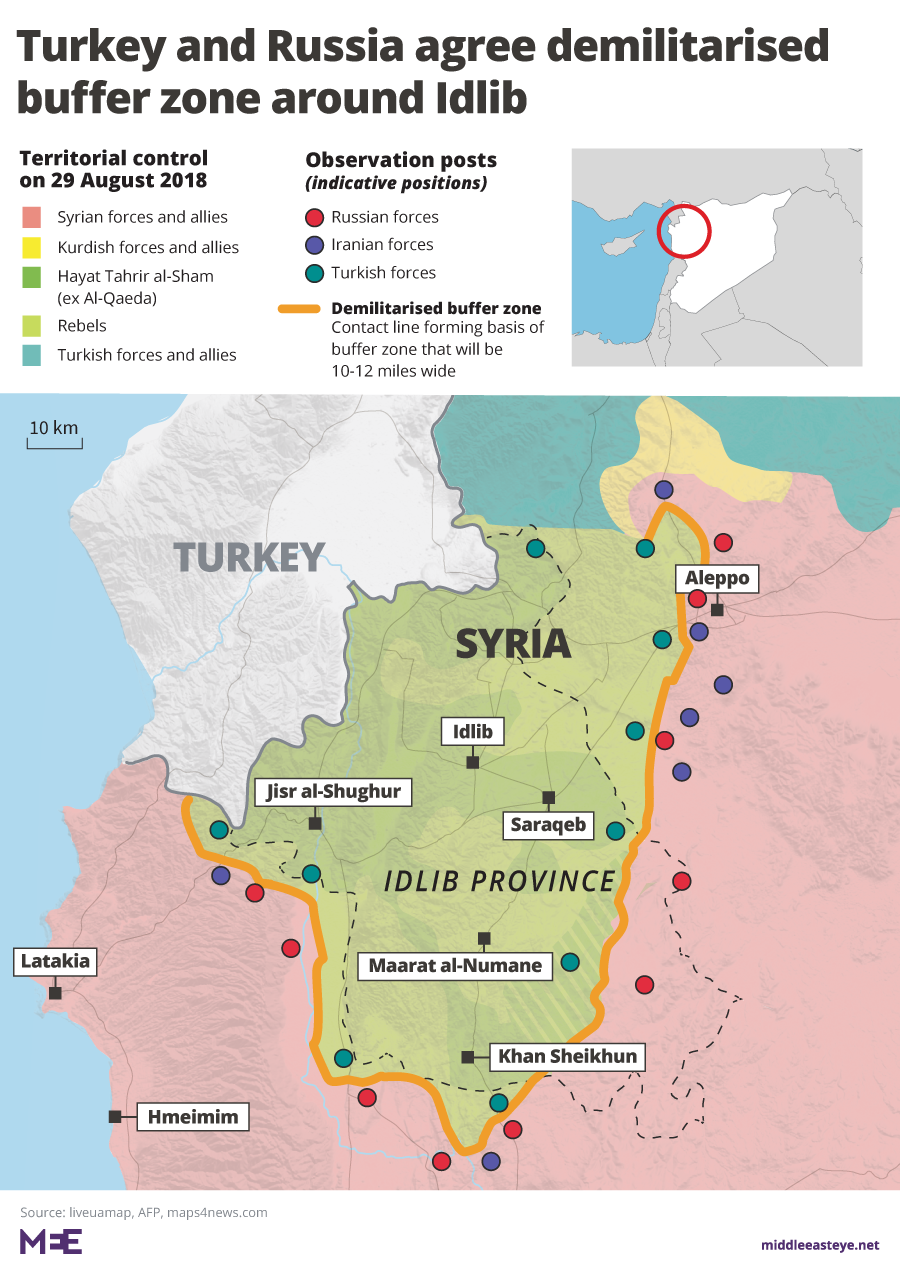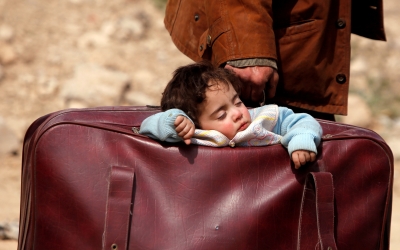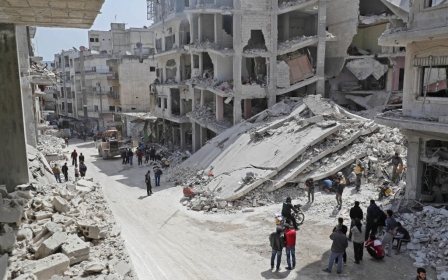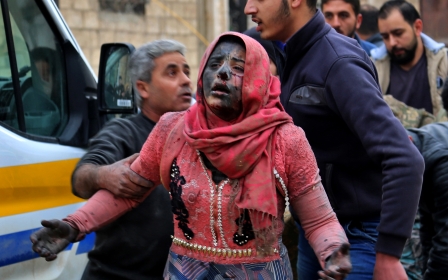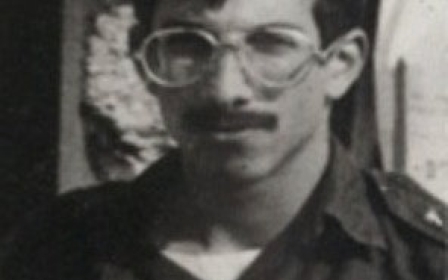Pro-government forces bombard opposition areas in northwestern Syria

Russian and Syrian forces have kept up a widespread bombing campaign for a third day on towns and villages in the last rebel-held area in northwestern Syria, activists have said.
The targeted areas in northern Hama and southern Idlib are part of a buffer zone established after a September agreement brokered by Russia and Turkey prevented a major government offensive on the area.
Fareed al-Omri, a Syrian activist and journalist, based in the Syrian city of Maarat al-Numan, said that the bombings by Syrian helicopters and Russian warplanes have been ongoing since early Thursday morning.
"We can hear the regime using barrel bombs and rockets. They are falling on civilians, children and women … and the world is watching on,” Omri told Middle East Eye.
Five people were killed on Wednesday in barrel bomb attacks, including four members of the same family, Othman al-Khani, an activist in Idlib, said.
New MEE newsletter: Jerusalem Dispatch
Sign up to get the latest insights and analysis on Israel-Palestine, alongside Turkey Unpacked and other MEE newsletters
Khani told MEE that government air strikes targeted roads used by civilians to flee bombing areas in Idlib’s southern countryside.
A man driving a car used to transfer civilians to safe areas was killed in an air strike on Tuesday, according to Khani, while two women were also killed in a separate attack on the village of Abdeen. Some 22 civilians have reportedly been wounded in the past two days.
'Civilians are facing two very bad choices: staying in areas under air strike attacks or moving on roads that have also been targeted by warplanes'
- Abdel-Aziz Ajni, Idlib Political Commission
“Civilians are facing two very bad choices: staying in areas under air strike attacks or moving on roads that have also been targeted by warplanes,” Abdel-Aziz Ajni, a member of the Idlib Political Commission, told MEE from Ariha, a town south of the province.
The attacks, the heaviest since the September deal, have targeted residential areas, as well as damaging schools, two hospitals and two primary healthcare centres.
"We have information that educational facilities, health facilities and residential areas are being bombed by helicopters and planes," United Nations regional humanitarian coordinator Panos Moumtzis told the Reuters news agency in Geneva.
"The barrel bombing is the worst we have seen for at least 15 months."
'Civilians are very afraid of what’s to come'
Jaber Ali Basha, the head of the ultraconservative Ahrar al-Sham group, said in a statement on Saturday that the group stands ready to confront any ground offensives by government forces and their allies.
Ahrar al-Sham is part of the National Liberation Front, the main Turkey-backed rebel coalition in Idlib.
"We have stepped up our readiness and sent troop reinforcements to confront any attack [by] the regime and the Russians on any area," Naji al-Mustafa, spokesman for the National Liberation Front, told Reuters.
Syrian state media said the government attacks are in retaliation to the militants repeated violations of the de-escalation agreement. It also said government forces targeted the positions of militant group Hay’at Tahrir al-Sham (HTS) in the villages of al-Hweiz, Tal Hawash, Fkar Nabouda and al-Sharia.
HTS, an umbrella of factions dominated by al-Qaeda's former Syrian branch, is the most powerful group operating in Idlib.
“Civilians are very afraid of what’s to come. They are scared of a possible ground offensive by the regime and its allies that would lead to a catastrophic humanitarian situation,” Khani said.
He added that people remember all too well the government’s techniques of exerting “unbearable pressure” on civilians in its offensives in Eastern Ghouta and east Aleppo and they are not willing to stay in targeted areas.
“Hiding in bomb shelters is not a risk that people are willing to take. There is therefore a large wave of people taking whatever belongings they can carry and fleeing north, to areas near the border with Turkey,” the activist said.
More than 138,500 people have been displaced from the buffer zone since February, according to the UN.
Over 32,500 people sought refuge in different communities in Idlib, Hama and Aleppo provinces between 1 and 28 April, David Swanson of the UN Office for the Coordination of Humanitarian Affairs told the AFP news agency.
Middle East Eye delivers independent and unrivalled coverage and analysis of the Middle East, North Africa and beyond. To learn more about republishing this content and the associated fees, please fill out this form. More about MEE can be found here.


